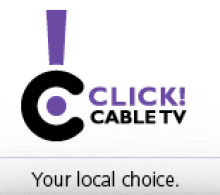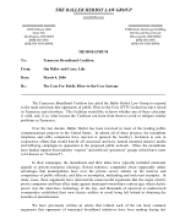Seattle's Short History of and Bleak Future for Community Broadband
We have followed Seattle's on-again, off-again consideration of a community broadband network for years and have occasionally noted the successful cable network in nearby Tacoma.
Seattle Met's Matthew Halverson has penned a short, impressive article explaining the trials and tribulations of Tacoma while also exploring why Seattle's Mayor has abandoned his goal of a broadband public option.
Before the massive cable consolidation that has left us with a handful of monopolists, we had a larger number of smaller monopolists that abused their market power to limit competition. One of the worst was TCI, which refused to upgrade its awful services in Tacoma, which pushed Tacoma to build its own network. TCI suddenly decided it did care about Tacoma.
TCI wouldn’t go down easily, of course. For the next year, as the City built out its system, the cable giant took advantage of the utility’s biggest weakness: All of its plans, from the kind of equipment it would buy to its construction schedule, were public information. So when Tacoma Power put in an order with its supplier for, say, coaxial cable, it found that TCI had already bought every foot of it. “But we started in one area of town and luckily we were able to get just enough material,” says Pat Bacon, Click’s technical operations manager. “We just inched our way through it and, before you knew it, we were a presence.” By July 1998, Click had its first cable subscriber, and the first broadband Internet user signed on in December 1999.A substantial portion of the article is devoted to the dynamics around open access between the utility and independent providers -- an important read for anyone considering the open access approach. Halverson did his homework on this article and I think he got it mostly right. I think the FiOS-wired suburbs do present a larger threat to Seattle than suggested, but it certainly does not compare to the approaching-existential crisis faced by Tacoma fifteen years ago. I wish I could disagree with his conclusion that Seattle is unlikely to get a community fiber network but unless the community rises up to demand it, elected officials are unlikely to see any benefit to making such a long term investment.






